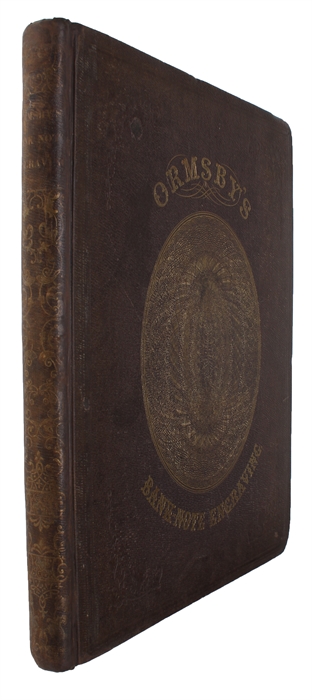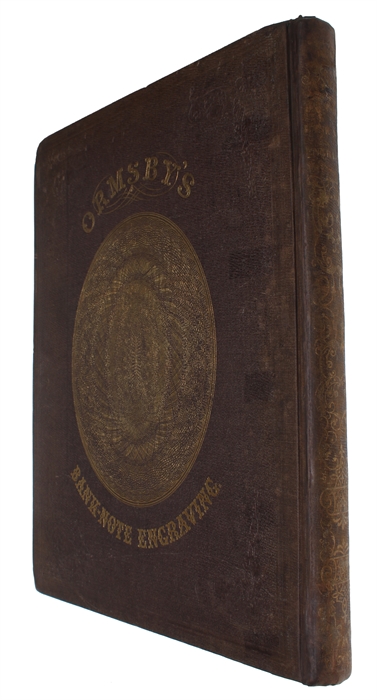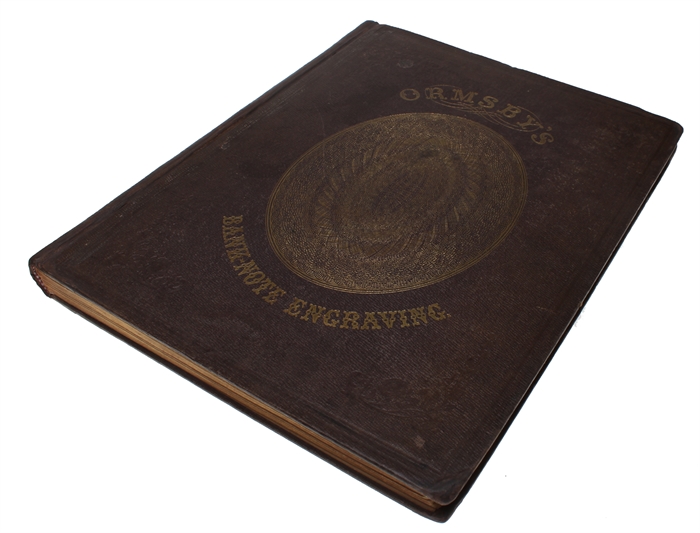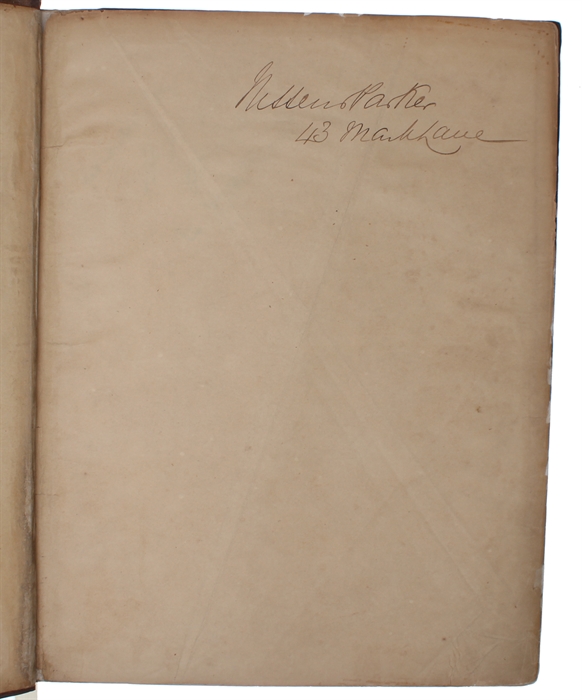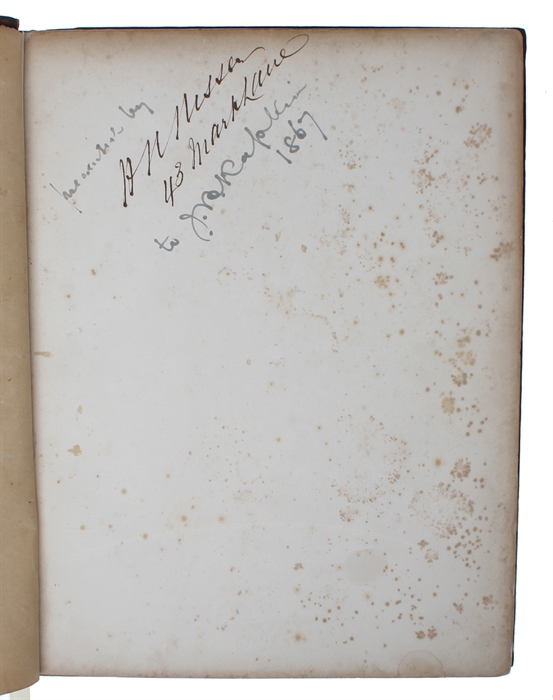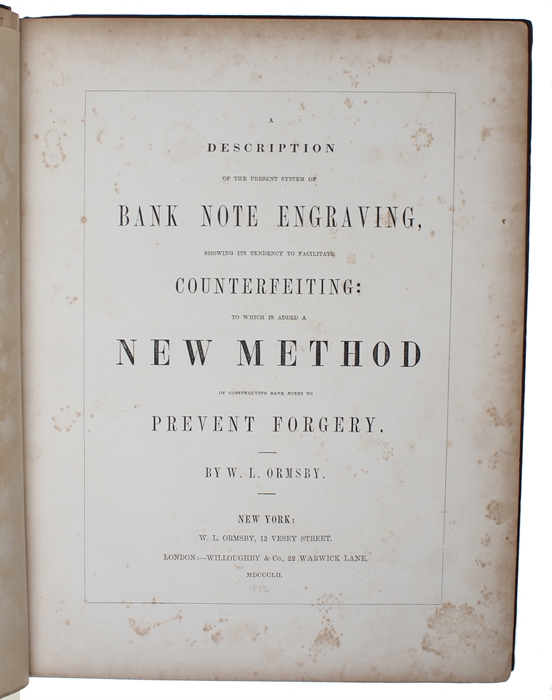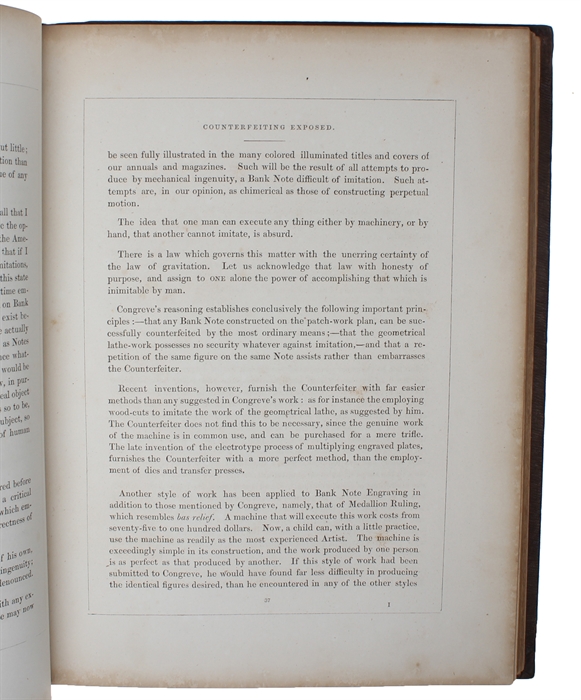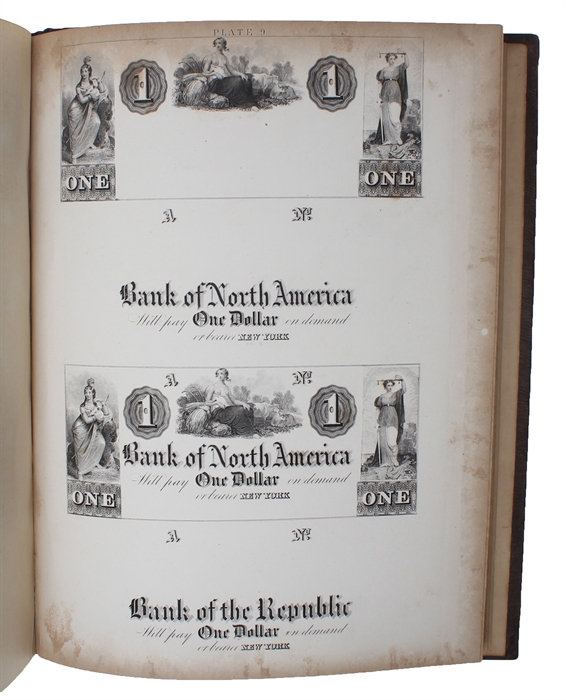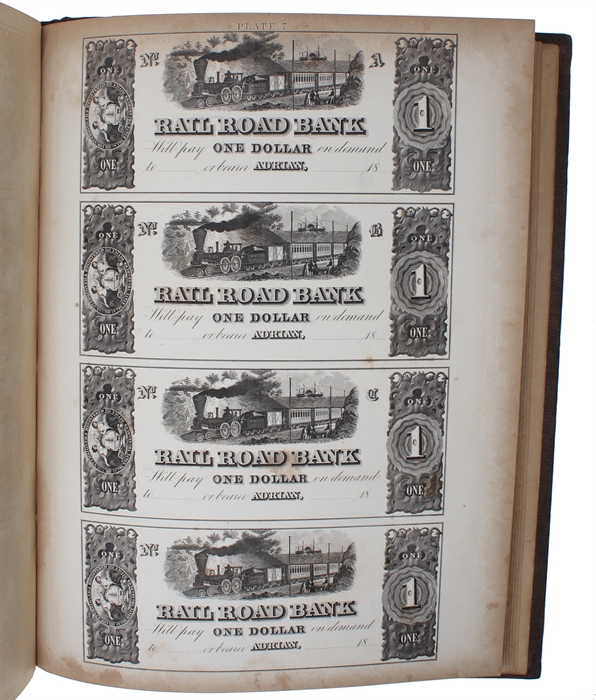THE MOST IMPORTANT WORK ON US PAPER MONEY
ORMSBY, W.L.
A Description of Present System of Bank Note Engraving, Showing its Tendency to Facilitate Counterfeiting: To which is added A New Mathod of Constucting Bank Notes to Prevent Forgery.
New York, Ormsby, 1852.
Folio. Original illustrated, richly gilt boards with a large gilt centre resembling a guilloche-gravure. Blindstamped corner-ornamentations and gilt lettering to boards as well. Old owner's inscription of "Nissen & Parker/ 43 Mark Lane" to front free end-paper and with a gift-inscription from H N Nissen, dated 1867, to first blank. VIII, 102 pp. + 13 engraved plates (including frontispiece, which is "PLATE 5") - complete. The 13 finely engraved plates demonstrate different technologies and depict bank notes, vignettes, and various design elements.
Very rare first edition of the most desirable and important book on American paper money. Ormsby’s magnum opus constitutes one of the most important works in American numismatic literature and is moreover one of the greatest rarities in this field. The work is revolutionary in counterfeiting history and is the first to propose a way of avoiding American counterfeit currency. As Ormsby states in the dedication “To the Presidents and Directors of the Banking Institutions of The United States”, this work aims “to set forth the greatest Perils to which their Circulation is exposed, and to furnish a Remedy, uniting Artistic Beauty, Economy, and Security against Counterfeiting”. The 13 magnificent plates depict geometric lathe work, figures printed in red, brown, and blue ink, and various bank notes, vignettes, and medallions as well as a depiction of "An Easy Method of Counterfeiting" and Perkins's "New System." “W.L. (Waterman Lilly) Ormsby (1809-1883) was a notable engraver, particularly recognized for his dedication to the reformation of currency production. While he had some formal training, most of his skills were honed through hours of hands-on work and experimentation in his workshop. He invented several ruling machines and transfer presses for improving the process of steel engraving. In addition, he is usually credited for the redesign of the five-dollar bill. Outside of banking notes, he assisted Samuel Morse with his telegraphic alphabet and provided engravings for Samuel Colt’s revolvers. In the end, Ormsby’s most influential contribution to the engraving trade was his personal crusade to bring attention to the proliferation of counterfeiting schemes in the U.S. In 1852, Ormsby published an impressive work on bank note engraving, the most extensive to date, with a particular focus on flaws in the current bank system and recommendations on how to counteract currency counterfeiters.” (Bachmann: W.L. Ormsby, Counterfeiting Exposed! From Harvard’s “The Shelf”). During his early life Waterman Ormsby lived at various times in Rochester, in Albany, where he engraved over his own name, and in Lancaster, Massachussets, where he worked for the firm of Carter, Andrews & Company. Finally he settled in New York City, where he became the proprietor of the New York Bank Note Company and one of the founders of the Continental Bank Note Company. The present copy has an excellent provenance, as it has been in the possession of the London bank note engravers Nissen & Parker in 43 Mark Lane and has later been gifted by Nissen himself. Nissen & Parker not only did bank note engraving, but ale bonds, cheques, drafts, etc. and must have had great need of expertise on securing themselves against forgeries. This magnificent volume is of the utmost scarcity and only few complete copies have been on the market over the last 50 years.
“During the first quarter of the nineteenth century the process of bank-note engraving was cheapened and facilitated by the introduction of machinery, and by the end of the century hand-craftsmanship had been almost entirely superseded. Ormsby represented a curious combination of the two techniques. He was a versatile and accomplished inventor of machinery to facilitate the processes of engraving, but he was bitterly opposed to the complete replacement of the artist-craftsman. He held that notes should be engraved as a unit upon a single plate, with careful craftsmanship exerted on the design and interdependence of the composition. The counterfeiter would thus be foiled "not because he does not know how the work is done, but because he can not do it”."
Order-nr.: 60106

